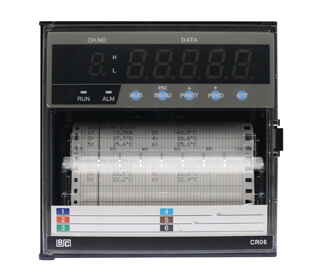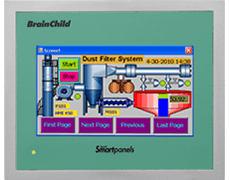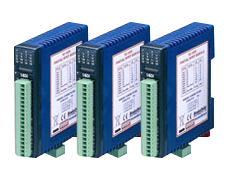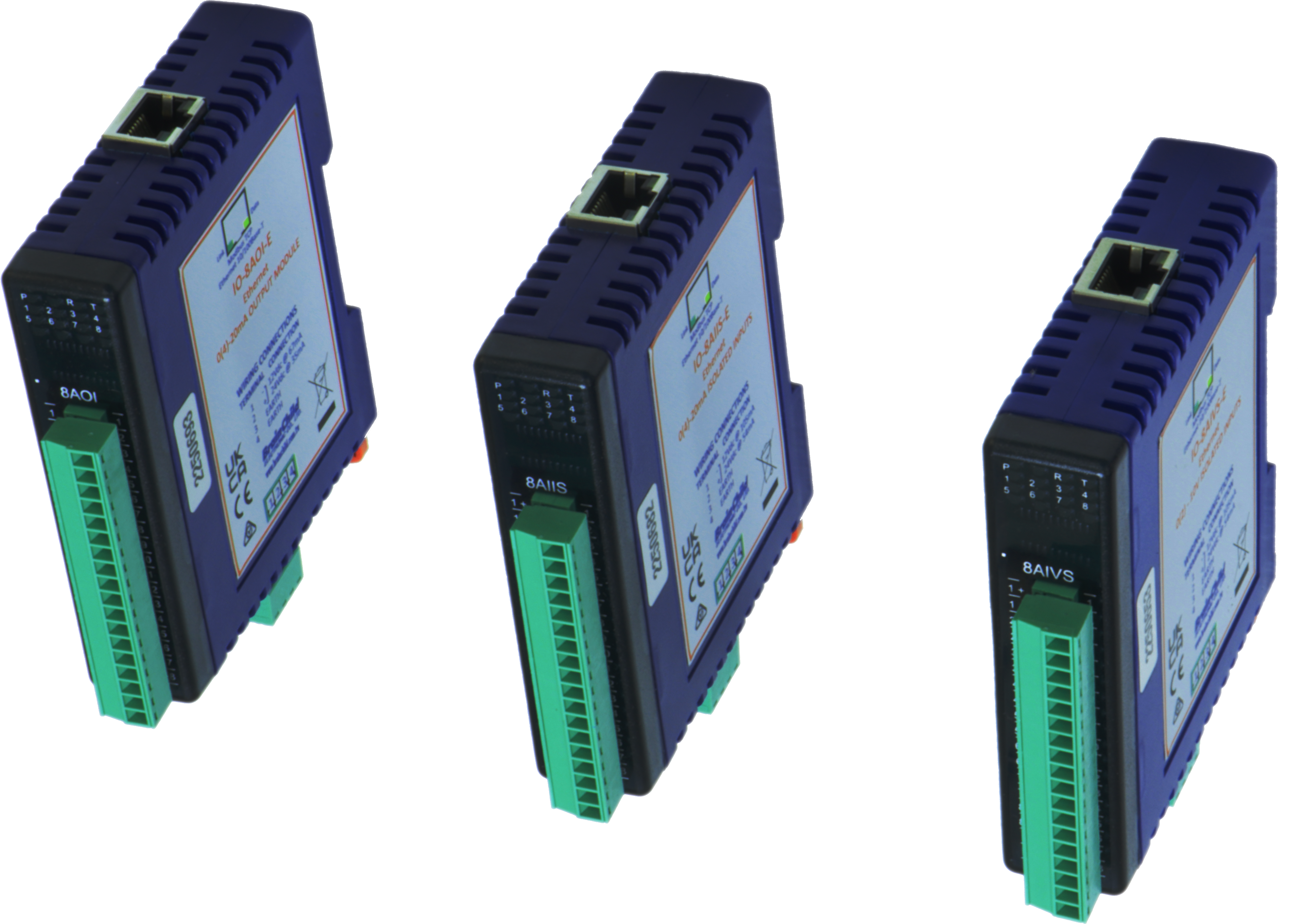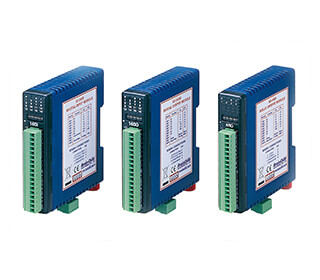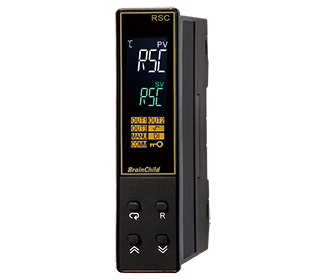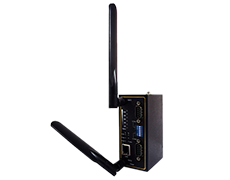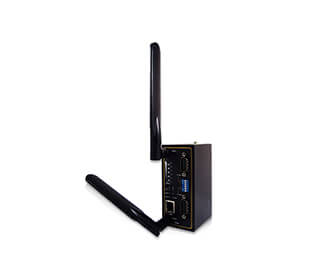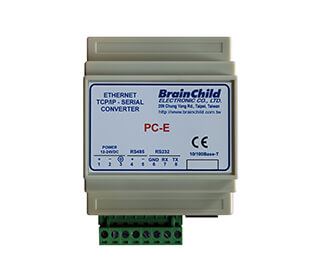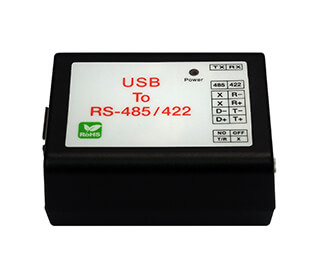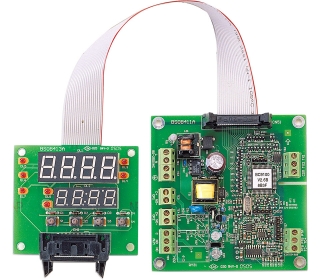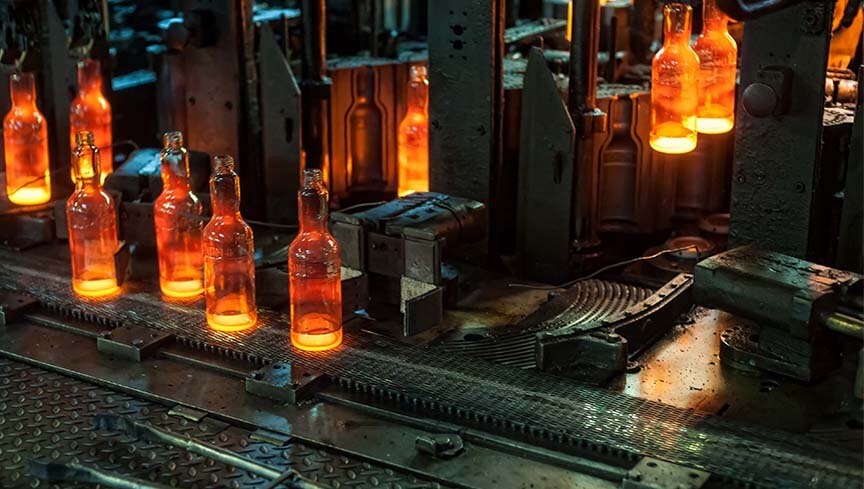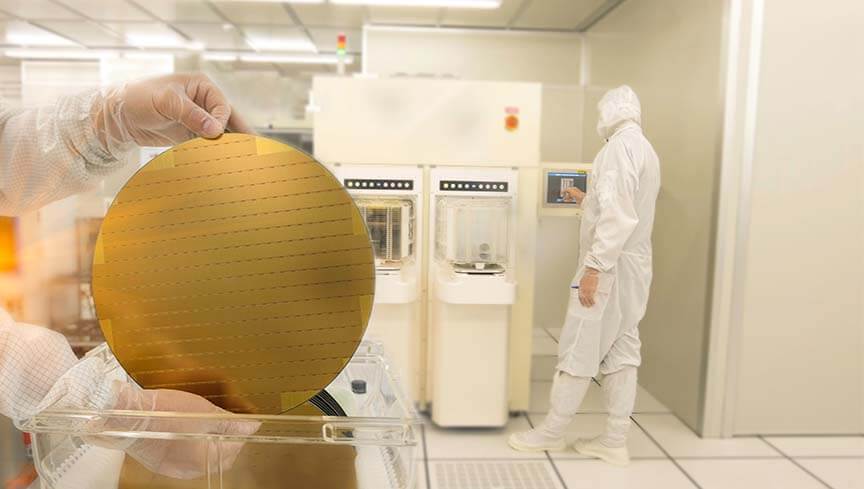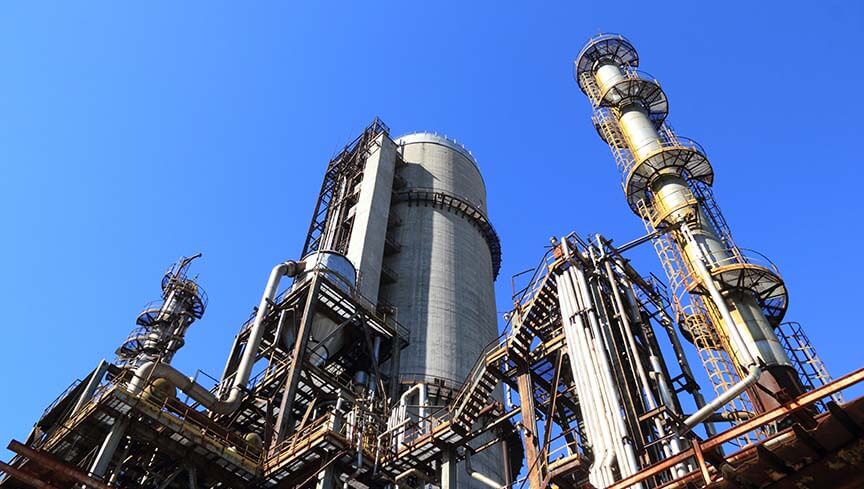B41 Board PID
The board type of Fuzzy Logic plus PID microprocessor-based controller series incorporate a bright, easy to read 4-digit LED display, indicating process value or set point value, mainly used for OEM & machinery applications. The Fuzzy Logic technology enables a process to reach a predetermined set point in the shortest time, with the minimum of overshoot during power-up or external load disturbance.
- Easy-to-use
- Fuzzy modified PID heat & cool control
- Fast A-D sampling rate (5 times/s)
- Universal input (PT100, thermocouple)with high accuracy 18-bit A-D
- Analog output (linear current or voltage)uses high accuracy 15-bit D-A
- RS-485 RS-232 interface
- Programming port provided on board
- Support manual control & auto-tune function
- Wide variety of alarm mode selection
- Lockout protection control
- Bumpless transfer during failure mode
- Soft-start ramp and dwell timer
- Bright display stabilized with digital filter
- SEL function allows to rearrange user menu
- Meets UL/CSA/CE standards
- High performance at low cost
| Power |
|---|
| 90 - 250 VAC, 47 - 63 Hz, 12VA, 5W maximum |
| 11 - 26 VAC / VDC, SELV, Limited Energy, 12VA, 5W maximum |
| Signal Input | Characteristics |
|---|---|
| Resolution | 18 bits |
| Sampling Rate | 5 times / second |
| Maximum Rating | -2 VDC minimum, 12 VDC maximum( 1 minute for mA input ) |
| Temperature Effect | ±1.5 uV/ °C for all inputs except mA input ±3.0 uV/ °C for mA input |
| Sensor Lead Resistance Effect | T/C: 0.2uV/ohm 3-wire RTD: 2.6 °C/ohm of resistance difference of two leads 2-wire RTD: 2.6 °C/ohm of resistance sum of two leads |
| Burn-out Current | 200nA |
| Common Mode Rejection Ratio ( CMRR ) | 120dB |
| Sensor Break Detection | Sensor open for TC, RTD and mV inputs, below 1 mA for 4-20 mA input, below 0.25V for 1 - 5 V input, unavailable for other inputs. |
| Sensor Break Responding Time | Within 4 seconds for TC, RTD and mV inputs, 0.1 second for 4-20 mA and 1 - 5 V inputs. |
| Characteristics | |||
|---|---|---|---|
| Type | Range | Accuracy@ 25 °C | Input Impedance |
| J | -120 ~ 1000 °C (-184 ~ 1832 °F) | ±2 °C | 2.2MΩ |
| K | -200 ~ 1370 °C (-328 ~ 2498°F) | ±2 °C | 2.2MΩ |
| T | -250 ~ 400°C (-418 ~ 752°F) | ±2 °C | 2.2MΩ |
| E | -100 ~ 900 °C (-148 ~ 1652 °F) | ±2 °C | 2.2MΩ |
| B | 0 ~ 1820 °C (32 ~ 3308 °F) | ±2 °C (200°C - 1820°C) | 2.2MΩ |
| R | 0 ~ 1767.8 °C (32 ~ 3214 °F) | ±2 °C | 2.2MΩ |
| S | 0 ~ 1767.8 °C (32 ~ 3214 °F) | ±2 °C | 2.2MΩ |
| N | -250 ~ 1300 °C (-418 ~ 2372 °F) | ±2 °C | 2.2MΩ |
| L | -200 ~ 900 °C (-328 ~ 1652 °F) | ±2 °C | 2.2MΩ |
| PT100 (DIN) | -210 ~ 700 °C (-346 ~ 1292 °F) | ±0.4°C | 1.3KΩ |
| PT100 (JIS) | -200 ~ 600 °C (-328 ~ 1112 °F) | ±0.4°C | 1.3KΩ |
| mV | -8 ~ 70mV | ±0.05% | 2.2MΩ |
| mA | -3 ~ 27mA | ±0.05% | 70.5Ω |
| V | -1.3 ~ 11.5V | ±0.05% | 510KΩ |
| Output 1 / Output 2 | |
|---|---|
| Relay Rating | 2A/240 VAC, life cycles 200,000 for resistive load |
| Pulsed Voltage | Source Voltage 5V, current limiting resistance 66Ω |
| Linear Output Characteristics | |||
|---|---|---|---|
| Type | Zero Tolerance | Span Tolerance | Load Capacity |
| 4-20 mA | 3.6-4 mA | 20-21 mA | 500Ω max. |
| 0-20 mA | 0 mA | 20-21 mA | 500Ω max. |
| 0-5 V | 0 V | 5-5.25 V | 10KΩ min. |
| 1-5 V | 0.9-1 V | 5-5.25 V | 10KΩ min. |
| 0-10 V | 0 V | 10-10.5 V | 10KΩ min. |
| Linear Output | |
|---|---|
| Resolution | 15 bits |
| Output Regulation | 0.02 % for full load change |
| Output Settling Time | 0.1 sec. ( stable to 99.9 % ) |
| Isolation Breakdown Voltage | 1000VAC |
| Temperature Effect | ±0.01 % of SPAN / °C |
| Triac ( SSR ) Output | |
|---|---|
| Rating | 1A / 240 VAC |
| Inrush Current | 20A for 1 cycle |
| Min. Load Current | 50 mA rms |
| Max. Off-state Leakage | 3 mA rms |
| Max. On-state Voltage | 1.5V rms |
| Insulation Resistance | 1000 Mohms min. at 500 VDC |
| Dielectric Strength | 2500 VAC for 1 minute |
| Alarm | |
|---|---|
| Alarm 2 Relay | Form C,Max. rating 2A/240VAC, life cycles 200,000 for resistive load. |
| Alarm Functions | Dwell timer, Deviation High / Low Alarm, Deviation Band High / Low Alarm Process High / Low Alarm |
| Alarm Mode | Normal, Latching, Hold, Latching / Hold. |
| Dwell Timer | 0.1 - 4553.6 minutes |
| Data Communication | |
|---|---|
| Interface | RS-232 ( 1 unit ), RS-485 ( up to 247 units ) |
| Protocol | Modbus Protocol RTU mode |
| Address | 1 - 247 |
| Baud Rate | 2.4 ~ 38.4 Kbits/sec |
| Data Bits | 7 or 8 bits |
| Parity Bit | None, Even or Odd |
| Stop Bit | 1 or 2 bits |
| Communication Buffer | 160 bytes |
| Analog Retransmission | |
|---|---|
| Output Signal | 4-20 mA, 0-20 mA, 0-1V, 0-5V, 1-5V, 0-10V |
| Resolution | 15 bits |
| Accuracy | ±0.05 % of span ±0.0025 %/ °C |
| Load Resistance | 0 - 500 ohms ( for current output ),10 K ohm minimum ( for voltage output ) |
| Output Regulation | 0.01 % for full load change |
| Output Settling Time | 0.1 sec. (stable to 99.9 % ) |
| Isolation Breakdown Voltage | 1000 VAC min. |
| Integral Linearity Error | ±0.005 % of span |
| Temperature Effect | ±0.0025 % of span/ °C |
| Saturation Low | 0 mA ( or 0V ) |
| Saturation High | 22.2 mA ( or 5.55V, 11.1V min. ) |
| Linear Output Range | 0 - 22.2mA(0-20mA or 4-20mA), 0 - 5.55V ( 0 - 5V, 1 - 5V ), 0 - 11.1 V ( 0 - 10V ) |
| User Interface | |
|---|---|
| Dual 4-digit LED Displays | Upper 0.55" ( 14mm ) Lower 0.4" ( 10 mm ) |
| Keypad | 4 keys |
| Programming Port | For automatic setup, calibration and testing |
| Communication Port | Connection to PC for supervisory control |
| Control Mode | |
|---|---|
| Output 1 | Reverse ( heating ) or direct ( cooling )action |
| Output 2 | PID cooling control, cooling P band 50 ~ 300% of PB, dead band -36.0 ~ 36.0% of PB |
| ON-OFF | 0.1 - 90.0 ( °F ) hysteresis control ( P band = 0 ) |
| P or PD | 0 - 100.0 % offset adjustment |
| PID | Fuzzy logic modified , Proportional band 0.1 ~ 900.0°F , Integral time 0 - 3600 seconds , Derivative time 0 - 360.0 seconds |
| Cycle Time | 0.1 - 90.0 seconds |
| Manual Control | Heat (MV1) and Cool (MV2) |
| Auto-tuning | Cold start and warm start |
| Failure Mode | Auto-transfer to manual mode while sensor break or A-D converter damage |
| Ramping Control | 0 ~ 900.0°F/minute or 0 ~ 900.0 °F/hour ramp rate |
| Digital Filter | |
|---|---|
| Function | First order |
| Time Constant | 0, 0.2, 0.5, 1, 2, 5, 10, 20, 30, 60 seconds programmable |
| Environmental & Physical | |
|---|---|
| Operating Temperature | -10°C ~ 50°C |
| Storage Temperature | -40°C ~ 60°C |
| Humidity | 0 to 90 % RH ( non-condensing ) |
| Altitude | 2000m maximum |
| Pollution | Degree 2 |
| Insulation Resistance | 20 Mohms min. ( at 500 VDC ) |
| Dielectric Strength | 2000 VAC, 50/60 Hz for 1 minute |
| Vibration Resistance | 10 - 55 Hz, 10 m/s² for 2 hours |
| Shock Resistance | 200 m/s2( 20 g ) |
| Safety | UL 61010-1, 3rd Edition. CAN/CSA-C22.2 No. 61010-1(2012-05), 3rd Edition. |
| EMC | EN61326 |
| Documentation | ||
|---|---|---|
| Brochure | LFB41 (1.33 MB / 6pages ) | Download |
| User Manual | UM0B411D (1MB / 78pages ) | Download |
| Software&Frimware | ||
|---|---|---|
| BC-Set | Software - BC-SET v2.0(6.9MB) | Download |
Plastic/rubber industry
It is installed on the heating material tube of the injection molding machine to control the temperature of the raw material, effectively control the liquid temperature of the plastic and improve the molding quality of the product.
Installed on the hot runner system for temperature control of runners and gates to stabilize the quality of the plastic.
Temperature control on the mold temperature machine, indirectly adjusting the temperature of the mold by adjusting the temperature of the hot fluid, can improve the production efficiency of the product and reduce the generation of defective products.
Electric heating furnace industry
Vacuum furnace equipment / vacuum melting / vacuum heat treatment
A new algorithm for PID adjustment using fuzzy rules is used to adjust the PID algorithm to eliminate the PID saturation integral phenomenon when the error is large. When the error is small, the improved PID algorithm is used for adjustment and can be automatically adjusted. Learn and memorize some of the characteristics of the controlled object to optimize the effect
Semiconductor industry
The temperature control of the electric heating cloth package is often used for the heating of the exhaust pipe valve parts of the semiconductor factory, the panel factory, or the special steel cylinder.
In the semiconductor temperature process control program, the heating system of the chamber, such as the decane process, the dichloromethane process
Ceramic / kiln / glass industry
Ceramic sintering furnace:
The heating process on the sintering furnace controls the heating rate to obtain a finished product with better quality and stability.
Electric kiln:
Temperature adjustment during kiln firing to obtain a finished product with better quality and stability.
Fiber machinery
Dyeing machine:
control the temperature during dyeing to a suitable range, which in turn reduces chromatic aberration and improves the quality of dyed products.
Fiber dryer:
The temperature during drying is controlled within a suitable range to improve the fiber product.
other
Temperature Controller
Constant temperature and humidity machine
Heating/cooling air conditioning
Pool/bathroom temperature control facility
| □ | □ | □ | □ | □ | □ | □ |
| 1 | 2 | 3 | 4 | 5 | 6 | 7 |
| 1 Power Input | 4: 90 - 264 VAC, 47-63 HZ 5: 11 - 26 VAC or VDC, SELV, Limited Energy |
| 2 Signal Input | 1: Standard Input Thermocouple: J, K, T, E, B, R, S, N, L RTD: PT100 DIN, PT100 JIS 2: 0 - 60 mV 3: 0 - 1 V 4: 0 - 5 V 5: 1 - 5 V 6: 4 - 20 mA 7: 0 - 20 mA 8: 0 - 10V 9: Special Order |
| 3 Output 1 | 0: None 1: Relay rated 2A / 240VAC 2: Pulsed voltage to drive SSR, 5V / 30mA 3: Isolated 4 - 20mA / 0 - 20mA 4: Isolated 1 - 5V / 0 - 5V 5: Isolated 0 - 10V 6: Triac output 1A / 240VAC,SSR C: Pulsed voltage to drive SSR, 14V/40mA 9: Special order |
| 4 Output 2 | 0: None 1: Form A relay 2A / 240VAC 2: Pulsed voltage to drive SSR, 5V / 30mA 3: Isolated 4 - 20mA / 0 - 20mA 4: Isolated 1 - 5V / 0 - 5V 5: Isolated 0 - 10V 6: Triac output, 1A / 240VAC, SSR 7: Isolated 20V / 25 mA DC Output Power Supply 8: Isolated 12V / 40 mA DC Output Power Supply 9: Isolated 5V / 80 mA DC Output Power Supply C: Pulsed voltage to drive SSR, 14V/40mA A: Special order |
| 5 Alarm | 0: None 1: Form C relay 2A / 240VAC 9: Special order |
| 6 Communications | 0: None 1: RS-485 interface 2: RS-232 interface(not available for BTC-7100) 3: Retransmit 4 - 20 mA / 0 - 20 mA 4: Retransmit 1 - 5V / 0 - 5V 5: Retransmit 0 - 10V 9: Special order |
| 7 Display board and Cable | 0: Without display board and without cable 3: With display board and with 300 mm cable 4: With display board and with 1000 mm cable 9: Special order |



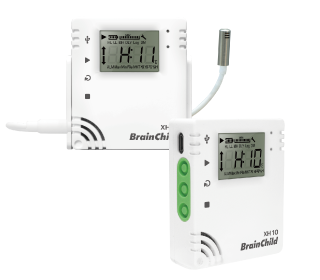
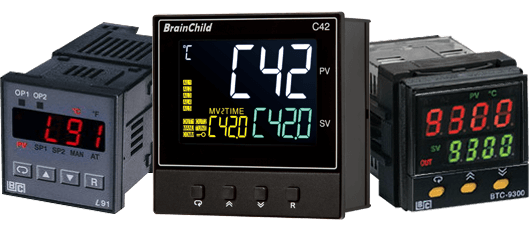

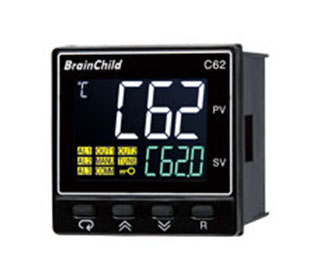
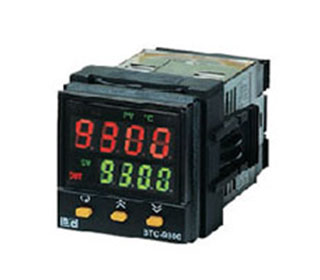
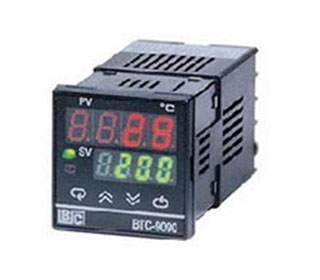
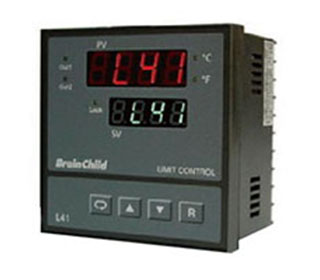
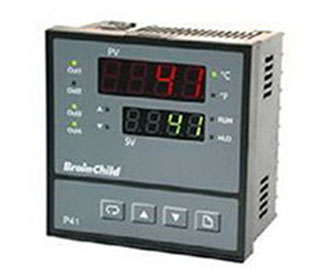
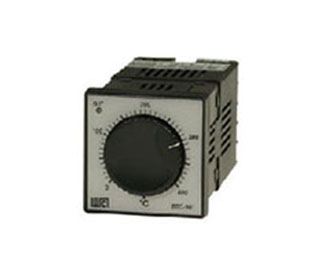

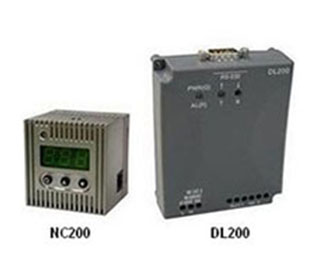
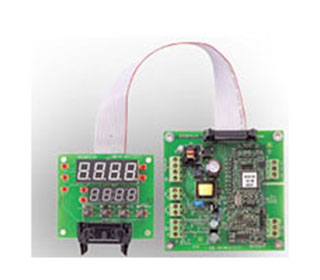
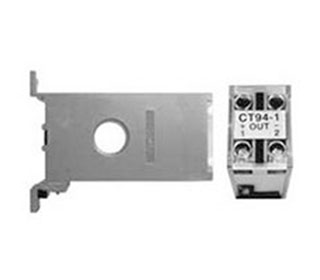
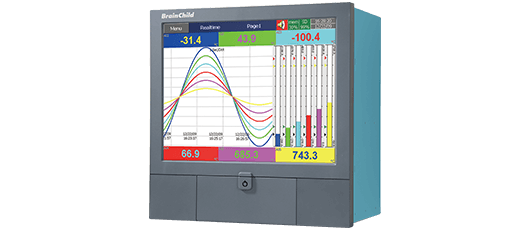
.png)
